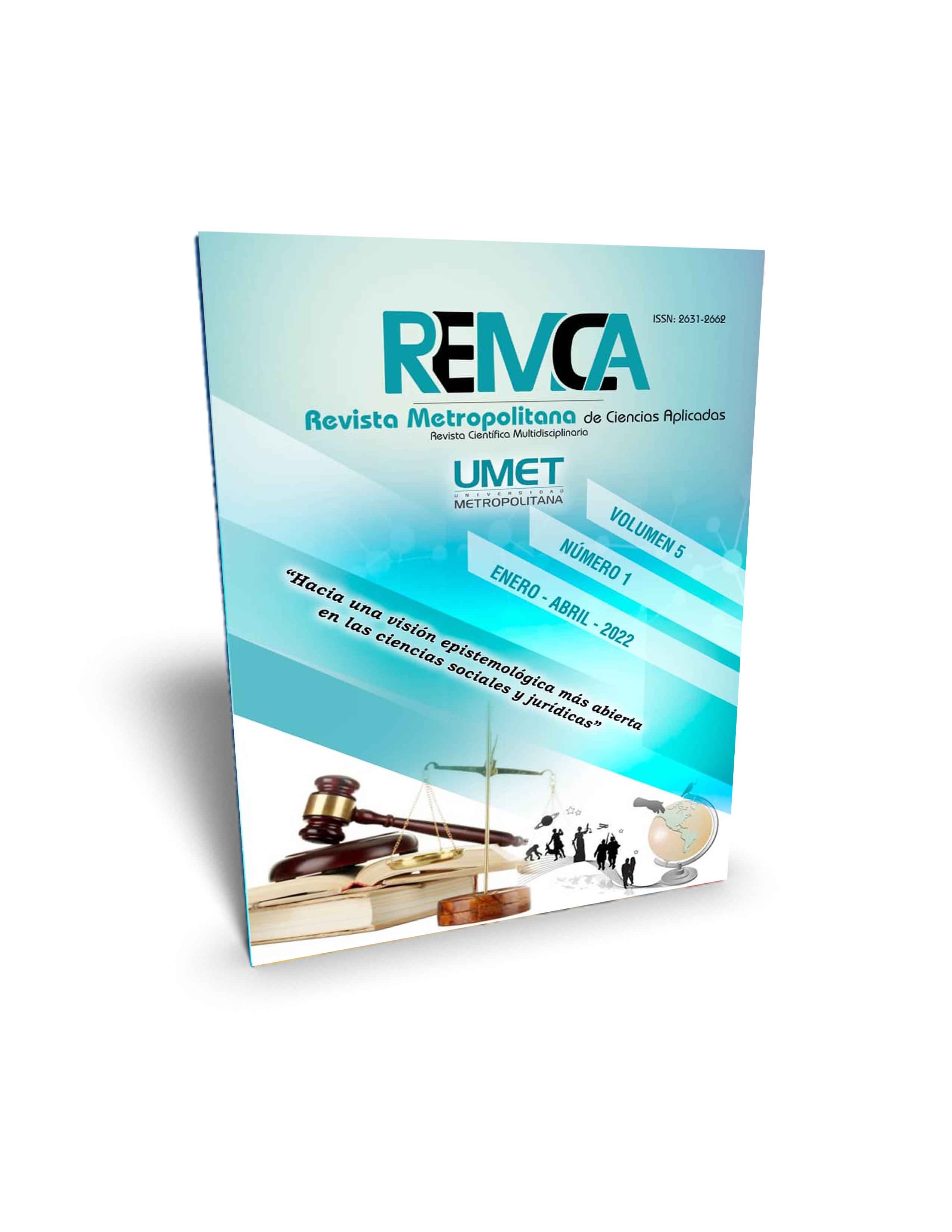Didactics in virtual learning environments
DOI:
https://doi.org/10.62452/15kq0321Keywords:
Didactics, virtual education, virtual environmentsAbstract
The unstoppable growth of the Internet, with the use of ICT, has helped the improvement of computer applications, which facilitate virtual educational environments, in which they transcend from a traditional teaching to a new online educational modality, where the teacher must be thoughtful and creative to motivate students in these environments to learn. These require didactics that are perhaps more demanding than the face-to-face classroom, but not totally different. The physical separation between teacher and student must be compensated with a continuous didactic interaction. Motivated by the COVID-19 pandemic, educational institutions in Ecuador had no alternative but to move their classes from a face-to-face classroom to an online one, thus emerging the reality of the teacher in the management of technologies in the classroom. In this sense, the objective of this article is focused on exposing how didactics applied in virtual environments can generate a new type of education. This article is the product of a bibliographic review, the contribution of several consulted sources and the author's experience from virtual spaces. The pandemic that today plagues humanity has increased the discrimination gap in all those groups in Ecuador that do not have access to technology, thus marginalizing them in their teaching and learning process, in the same way, the preparation of teachers in the management of tics plays is a key factor for these processes.
Downloads
References
Barberá, E., Romiszowski, A., Sangrá, A., & Simonson, M. (2006). Educación abierta y a distancia. UOC.
Bautista Pérez, G., Borges Sáiz, F., & Forés i Miravalles, A. (2011). Didáctica universitaria en entornos virtuales (1era. Edición). Narcea.
Boneu, J. (2007). Plataformas abiertas de e-learning para el soporte de contenidos educativos abiertos. Revista de Universidad y Sociedad del Conocimiento, 4 (1), 36- 47.
Bonilla, J. (2020). Las dos caras de la Educación en el COVID-19. CienciAmérica, 9(2), 89-98.
Buzón, O. (2005). La incorporación de plataformas virtuales a la enseñanza: una experiencia de formación en línea basada en competencias. Revista Latinoamericana de Tecnología Educativa, 4(1), 77-100.
Cabral, R. G. (2019). Didácticas en Entornos Virtuales para el Aprendizaje: el caso de la Bibliotecología. (Ponencia). Congreso de ciencias de la información del Mercosur. Instituciones, servicios y flujos de información y conocimiento para impulsar el desarrollo sostenible en realidades diversas. Pontificia Universidad Católica de Argentina, Argentina.
Cedeño, M., Palacios, L., Pico, L., & Nimes, P. (2021). La efectividad de la educación virtual frente a la pandemia en Ecuador. Dominio de las Ciencias, 7(2), 959-967.
Comisión Económica para América Latina (2020). Pandemia del COVID-19 llevará a la mayor contracción de la actividad económica en la historia de la región: caerá -5,3% en 2020, 21 de abril. CEPAL. https://www.cepal.org/es/comunicados/pandemia-covid-19-llevara-la-mayor-contraccion-la-actividad-economica-la-historia-la
Delgado, M., & Solano, A. (2009). Estrategias didácticas creativas en entornos virtuales para el aprendizaje. Revista Actividades Investigativas en Educación, 9(2), 1-21.
Delgado, P. (2020). Aprendizaje sincrónico y asincrónico: definición, ventajas y desventajas. Tecnológico de Monterrey. https://observatorio.tec.mx/edu-news/aprendizaje-sincronico-y-asincronico-definicion
Ecuador. Ministerio de Educación- Universidad Central del Ecuador. (2020b). Mi aula en Línea, curso de autoaprendizaje para los docentes. https://educacion.gob.ec/el-ministerio-de-educacion-abre-el-curso-de-autoaprendizaje-mi-aula-en-linea/
Ecuador. Ministerio de Educación. (2020a). El Mundo Virtual de Eugenia. Recuperado de: https://internetsegura.gob.ec
Ecuador. Ministerio de Educación. (2020c). Portal Mecapacito. Aula Virtual. Formación permanente para docentes y directivos. https://educacion.gob.ec/plataforma-mecapacito/
Perrone, G., & Propper, F. (2007). Diccionario de educación. 1era. Edición (1ª. Ed.). Alfagrama.
Real Academia Española. (2007). Diccionario de la lengua española (22ª. Ed.). RAE.
Downloads
Published
Issue
Section
License
Copyright (c) 2022 Marigina del Carmen Guzmán, Elsa Josefina Albornoz, Roberto Alvarado (Autor/a)

This work is licensed under a Creative Commons Attribution-NonCommercial-ShareAlike 4.0 International License.
Authors who publish in Revista Metropolitana de Ciencias Aplicadas (REMCA), agree to the following terms:
1. Copyright
Authors retain unrestricted copyright to their work. Authors grant the journal the right of first publication. To this end, they assign the journal non-exclusive exploitation rights (reproduction, distribution, public communication, and transformation). Authors may enter into additional agreements for the non-exclusive distribution of the version of the work published in the journal, provided that acknowledgment of its initial publication in this journal is given.
© The authors.
2. License
The articles are published in the journal under the Creative Commons Attribution-NonCommercial-ShareAlike 4.0 International License (CC BY-NC-SA 4.0). The terms can be found at: https://creativecommons.org/licenses/by-nc-sa/4.0/deed.en
This license allows:
- Sharing: Copying and redistributing the material in any medium or format.
- Adapting: Remixing, transforming, and building upon the material.
Under the following terms:
- Attribution: You must give appropriate credit, provide a link to the license, and indicate if any changes were made. You may do this in any reasonable manner, but not in any way that suggests the licensor endorses or sponsors your use.
- NonCommercial: You may not use the material for commercial purposes.
- ShareAlike: If you remix, transform, or build upon the material, you must distribute your creation under the same license as the original work.
There are no additional restrictions. You may not apply legal terms or technological measures that legally restrict others from doing anything the license permits.




